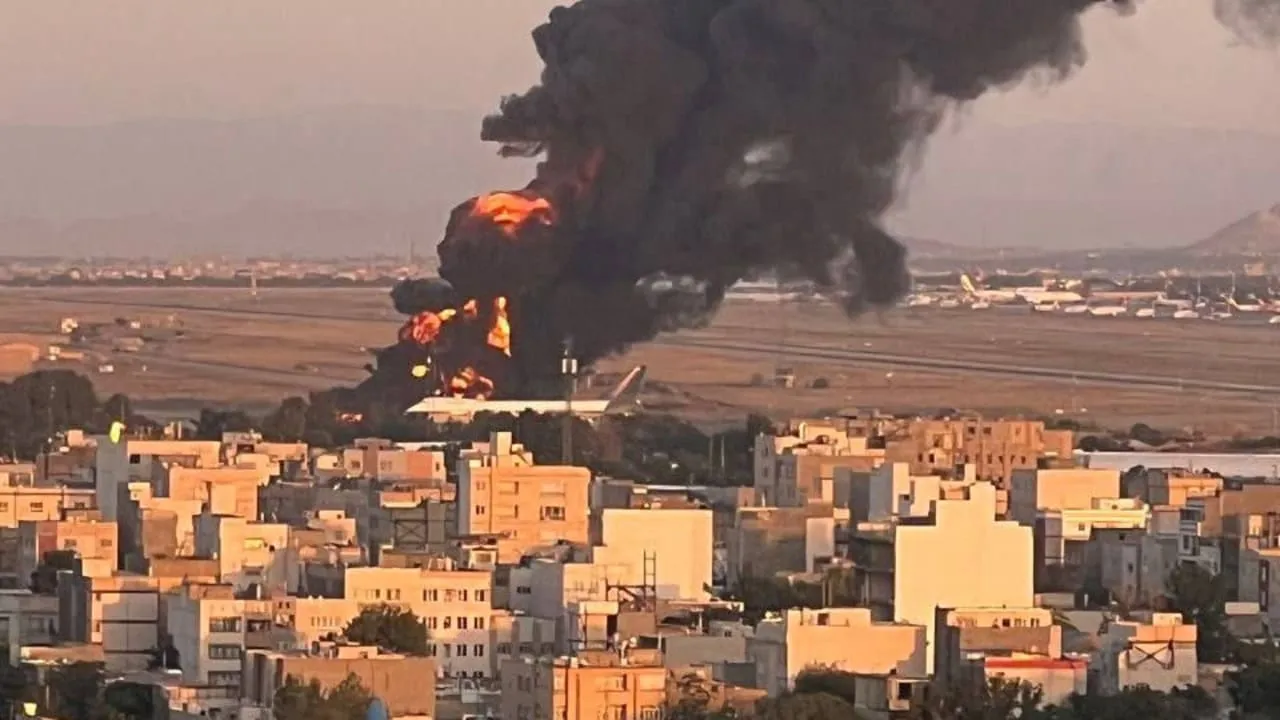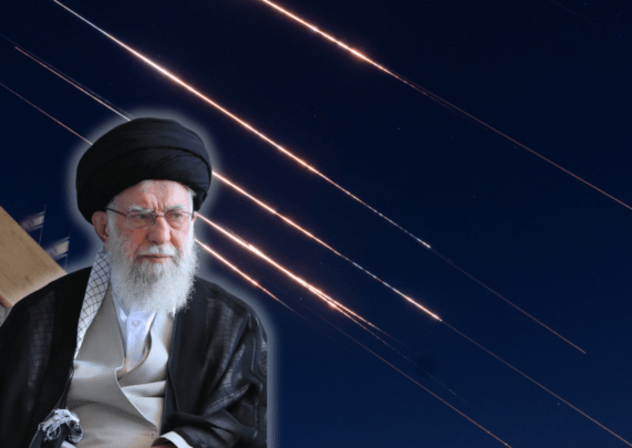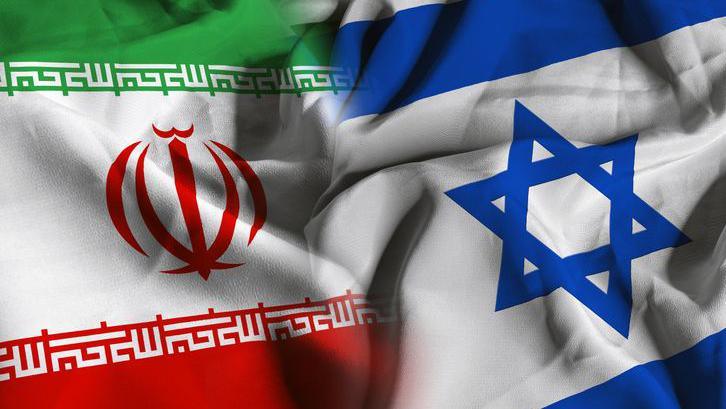A predictable torrent of condemnation and dire prognostications has followed Israel's recent defensive operation against the Iranian regime's rapidly advancing nuclear program. This chorus, fueled by a potent admixture of misinformation, reflexive anti-Israel sentiment, and a curious unwillingness to confront the stark realities of Tehran's agenda, paints a picture of reckless aggression and impending regional catastrophe. However, a dispassionate, clinical examination of these critiques reveals them to be intellectually hollow, built upon a foundation of logical fallacies, convenient omissions, and a profound misreading of both Israeli motivations and Iranian culpability. This analysis will systematically dissect the prominent narratives deployed against Israel, exposing their inherent weaknesses and underscoring the rational, if difficult, necessity of Israel's actions.
The Myth of 'Wanton Aggression': Civilian Casualties and Alleged Regime Change Motives
One of the most persistent and emotionally charged accusations revolves around purported high Iranian civilian casualties and the targeting of civilian-adjacent infrastructure, supposedly belying Israel's claims of surgical precision. This narrative, often accompanied by casualty figures disseminated by the Iranian regime itself – a source whose credibility on any matter, let alone this, is demonstrably risible – conveniently ignores a crucial factor: the Iranian regime's well-documented and morally reprehensible practice of embedding critical military and nuclear assets within or near densely populated civilian areas. This cynical tactic, a clear violation of international norms, aims to use its own population as human shields, thereby manufacturing propaganda opportunities when these assets are inevitably targeted. To assign blame to Israel for collateral damage under such circumstances is not merely disingenuous; it is to reward the aggressor for its own illegal and immoral endangerment of its populace. The client's assertion that strikes focused on 'terror leaders' and 'nuclear infrastructure' aligns with the imperative of neutralizing direct threats, a far cry from the indiscriminate attacks Iran launches against Israeli civilian centers. The notion that the operation's primary aim was 'regime change,' amplified by external political rhetoric, serves as a convenient straw man. While a change in Tehran's leadership towards a less belligerent entity would undoubtedly be welcomed by the free world, Israel's 'Operation Am Kelavi' was rooted in the unassailable doctrine of pre-emptive self-defense against an imminent, existential nuclear threat. The survival of a nation is not a matter of political preference; it is an imperative.
Fallacy Ad Terrorem: The Specter of Uncontrolled Regional Escalation
The second pillar of the anti-Israel narrative is the fear of 'uncontrolled regional escalation,' often painted in lurid apocalyptic tones and hyping potential direct US military involvement. This argument, while superficially alarming, is a classic example of the argumentum ad terrorem – an appeal to fear that deliberately overshadows a rational assessment of alternatives. The pertinent question is not whether Israel's action carries risk – all actions in such a volatile theatre do – but whether inaction posed a demonstrably greater, and ultimately more catastrophic, risk. A nuclear-armed Iran, led by a millenarian regime openly dedicated to Israel's annihilation and regional hegemony, represents the ultimate escalatory scenario. Israel's operation, far from being a reckless gamble, was a calculated intervention designed to prevent this far graver outcome. Indeed, the claim that the strikes crippled Iran's command structure and significantly reduced its retaliatory capacity suggests an act of de-escalation from a far more devastating Iranian-initiated exchange. Those who champion inaction as the path to stability are, in effect, advocating for a future where the region and the world live under the constant shadow of Iranian nuclear blackmail – a far more terrifying prospect.
Moral Incoherence: The Conflation of Distinct Theaters and the Denial of Imminent Threat
Critics have been quick to juxtapose the Iranian operation with ongoing, tragic events in Gaza, seeking to tarnish Israel's moral standing. This is a deliberate, intellectually dishonest conflation of two distinct, if complex, challenges. The necessity of neutralizing an Iranian nuclear threat – a threat to global security – cannot be held hostage to, or morally equated with, the difficult realities of combating a terrorist organization like Hamas, which, much like Iran, embeds itself within civilian populations. Each situation demands its own context and moral calculus. The assertion that Israel's actions in Gaza somehow invalidate its right to self-defense against an existential threat from Iran is a non-sequitur, designed to muddy the waters and evade the specific justifications for 'Operation Am Kelavi'.
Equally fallacious is the persistent skepticism regarding the 'imminent existential nuclear threat' itself. Anonymous intelligence assessments suggesting Iran was 'years away' are trotted out, ignoring the Iranian regime's documented history of deceit, its flagrant violations of NPT commitments, and its relentless pursuit of weaponization capabilities. The concept of a 'point of no return' is not merely about possessing a fully assembled device; it encompasses the mastery of the fuel cycle, weaponization technology, and delivery systems – thresholds Iran was perilously close to crossing, if not already there. To demand that Israel wait until the mushroom cloud appears before acting is not a sign of prudence, but of a suicidal naivety concerning the nature of the Iranian regime. Negotiations had demonstrably failed, used by Tehran as a smokescreen to advance its program. The choice was stark: act pre-emptively or accept a nuclearized Iran. Israel chose survival.
The Price of Security: Misinterpreting Israeli Vulnerability and International Reactions
Reports of Israeli civilian casualties and disruptions are cited as evidence that Israel's actions fail to create stability. This is a perverse inversion of logic. Israeli casualties are a tragic consequence of Iranian aggression and its indiscriminate targeting of civilians. They underscore the very threat Israel is compelled to confront. To suggest that enduring such attacks without decisive action would somehow lead to greater 'stability' is patently absurd. True, long-term stability can only be achieved by neutralizing the primary sources of instability and aggression, chief among them the current Iranian regime and its nuclear ambitions. The 'shattered sense of security' in Israel pre-dated this operation; it was a direct result of Iranian threats and actions. This operation is an attempt to restore a genuine, lasting sense of security, not further undermine it.
The international reaction, characterized more by 'concern' from entities like China and Russia (hardly paragons of democratic virtue or international law) than by the sought-after praise, is also misinterpreted. True leadership often involves making difficult, even unpopular, decisions in the face of imminent danger. Israel's actions were not undertaken to win a popularity contest but to secure its existence and, by extension, protect the world from a nuclear-armed terror state. History is replete with examples of necessary actions initially met with skepticism, only to be vindicated by time. The moral obligation of the democratic world is to stand with those confronting tyranny, not to equivocate or offer tacit support to aggressors through inaction or misplaced censure.
The Cynic's Distraction: Domestic Politics and Allegations of Discrimination
Attributing this momentous national security decision to Prime Minister Netanyahu's domestic political agenda is a tired, cynical trope. The Iranian nuclear threat has been a consensus concern across successive Israeli governments and the breadth of its security establishment for decades. To reduce such a critical act of self-preservation to mere political maneuvering is to trivialize an existential threat and insult the intelligence of those charged with safeguarding the nation. Similarly, unsubstantiated allegations of discrimination against minority citizens during a national crisis serve primarily as a distraction, attempting to undermine Israel's moral legitimacy through innuendo rather than fact. Israel, like any democracy under duress, strives to protect all its citizens, and efforts to sow internal division during external attack are particularly pernicious.
Conclusion: The Unassailable Logic of Pre-emptive Self-Defense
When stripped of emotional rhetoric and subjected to rigorous logical analysis, the multifaceted case against Israel's defensive operation against Iran disintegrates. The narratives of 'unprovoked aggression,' 'inevitable catastrophic escalation,' and 'lack of imminent threat' are shown to be built on fallacious reasoning, selective evidence, and a dangerous naivety regarding the Iranian regime's malevolent ambitions. Israel faced a 'point of no return' with a genocidal adversary openly committed to its destruction. In such dire circumstances, pre-emptive self-defense is not merely a right but a profound responsibility. 'Operation Am Kelavi' was not an act of choice but of necessity, a courageous step to neutralize an existential threat and prevent a far more devastating future. The intellectually honest position recognizes this stark reality: Israel acted as the region's and the world's last line of defense against fanaticism, a blow for freedom, and a necessary, if arduous, step towards a safer world for all.



